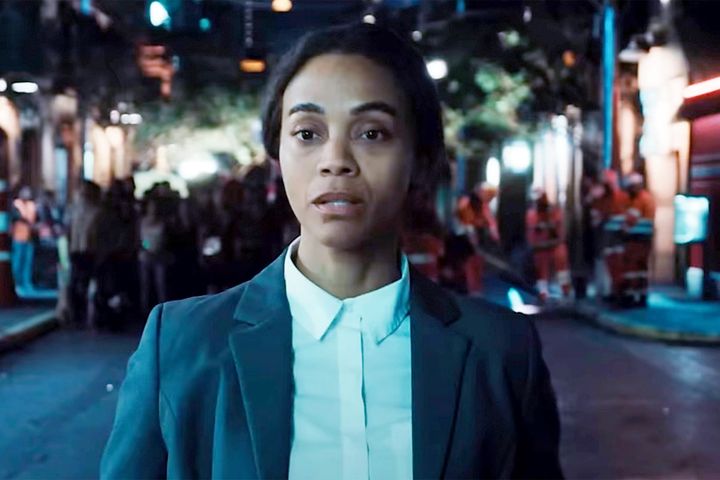
Talking TIFF: Chitra Palekar
Due to a little mixup, I couldn't connect with Chitra Palekar at our original scheduled time, but thankfully, the director of Maati Maay (A Grave Digger's Tale) took some time out to talk to me before the world premiere of her debut feature.
The film has a strong political message involving the caste system and family ties. How do these themes tie into a contemporary setting?
The film works on many levels. One of the levels is the relationships between man, woman, and the child. These individual relationships are universal, they transcend time. The minor details can be different, but these relationships are not time-bound.
There's not just father-child, mother-child, husband-wife and man-woman relationships though, there's also a theme of each individual's relationship with society. These relationships are not only in India: everywhere, society expects people to play a certain role. In this particular film, it may related to a caste, but going beyond that, society expects people to behave in a particular manner, expects them to follow their rules. You either give in, or you rebel. This is a concept that is beyond time: in that sense, the film is contemporary. The film may have been set 50 years ago, but it is not what one can call a period-piece.
You speak about fitting into a societal role: traditionally, films from the South Asian subcontinent have shied away from making overtly political films. How has making this film changed the way you interact with the film industry in India?
I don't work in the mainstream cinema at all, and I don't like the word 'Bollywood' at all. But what is mainstream or not? Is there a formula? After all, I have mainstream actors working in my film like Nandita Das: she is a mainstream actor but she does alternative cinema also. In that way, I've been lucky.
Alternative cinema in India has always challenged the regressive elements of society — ignorance, superstition, social pressures — all these things, I'm not the first person to do it. It has happened through our cinema, through our literature, so I can't take the credit for being a pioneer in doing this at all.
However, this story is very unique: it is one of the first films to focus on the woman grave-keeper, whose job, whose ancestral legacy, is to bury children. But when she becomes a nursing mother, her emotional and physical needs come into conflict with her job, which she thinks is her sacred duty. I think this film is one of the first to focus on the challenges in that particular stage of a woman's life: the nursing mother. That is quite unique.
How important was it to you to have this film premiere at Toronto, particularly considering the large South Asian population that we have in this city?
To be honest, this is my debut film as a director, and I had just completed the film when I heard the news that it was chosen for the Toronto festival Discovery section. It made me very happy. People have asked me the question on why I haven't released it yet in India — I'm going to release there in October — but here, I have my world premiere. For me, people all over the world are the same: you know, there may be slight cultural difference, but human beings are all the same. And if you can touch one, you can touch another.
To me, it will be great to see how Toronto crowds receive the movie, because to me, this film has universal appeal. So far, the feedback has been pretty good, but today is the big test, the world premiere. I'm looking forward to the question and answer session, because through the film and through the Q&A, you can communicate more, deliver the essential message. When you come together like this, there's bonding, and I think this film is really about bonding. This is a Bengali film that was filmed in India and released in Marathi: that way, it is an 'Indian' film. Just as I want to reach people all over India with this film, in the same way I want to reach people all over the world.
Of course, Toronto is also known for its marketing, so it's a great opportunity for my movie to be seen by people.
-
Chitra Palekar was born in Dharwar, India and received her B.A. in economics from St. Xavier's College in Mumbai, and her M.A. in economics at the University of Mumbai. An actor and director, she has played an important role in Indian avant-garde theatre. She wrote screenplays for the features The Village Had No Walls (96) and The Square Circle (96), and has directed the short documentary Portrait of a Visionary (02) and the fiction feature A Grave-Keeper's Tale (06).
(Film Still: DNYA Films)
(Director Bio: TIFFG)
Latest Videos
Latest Videos
Join the conversation Load comments







